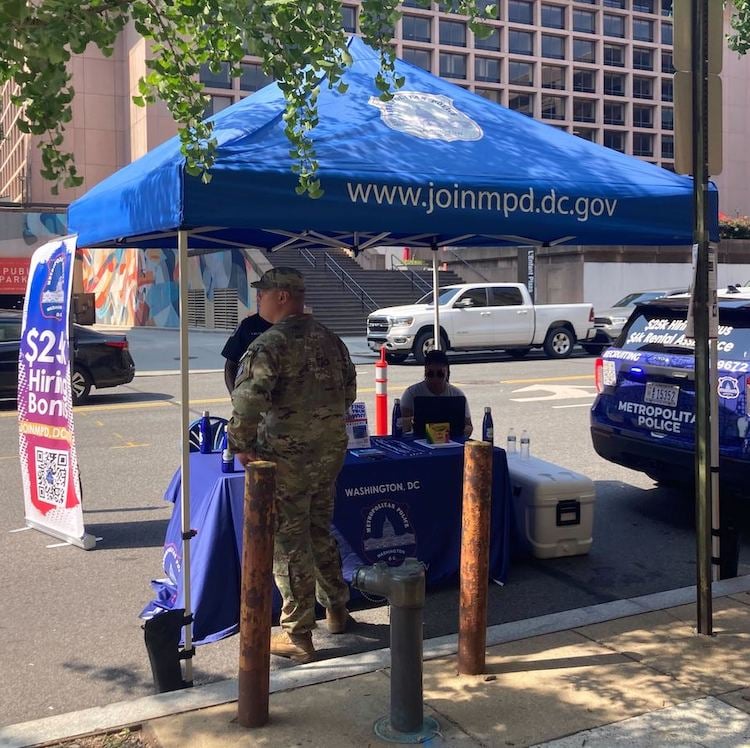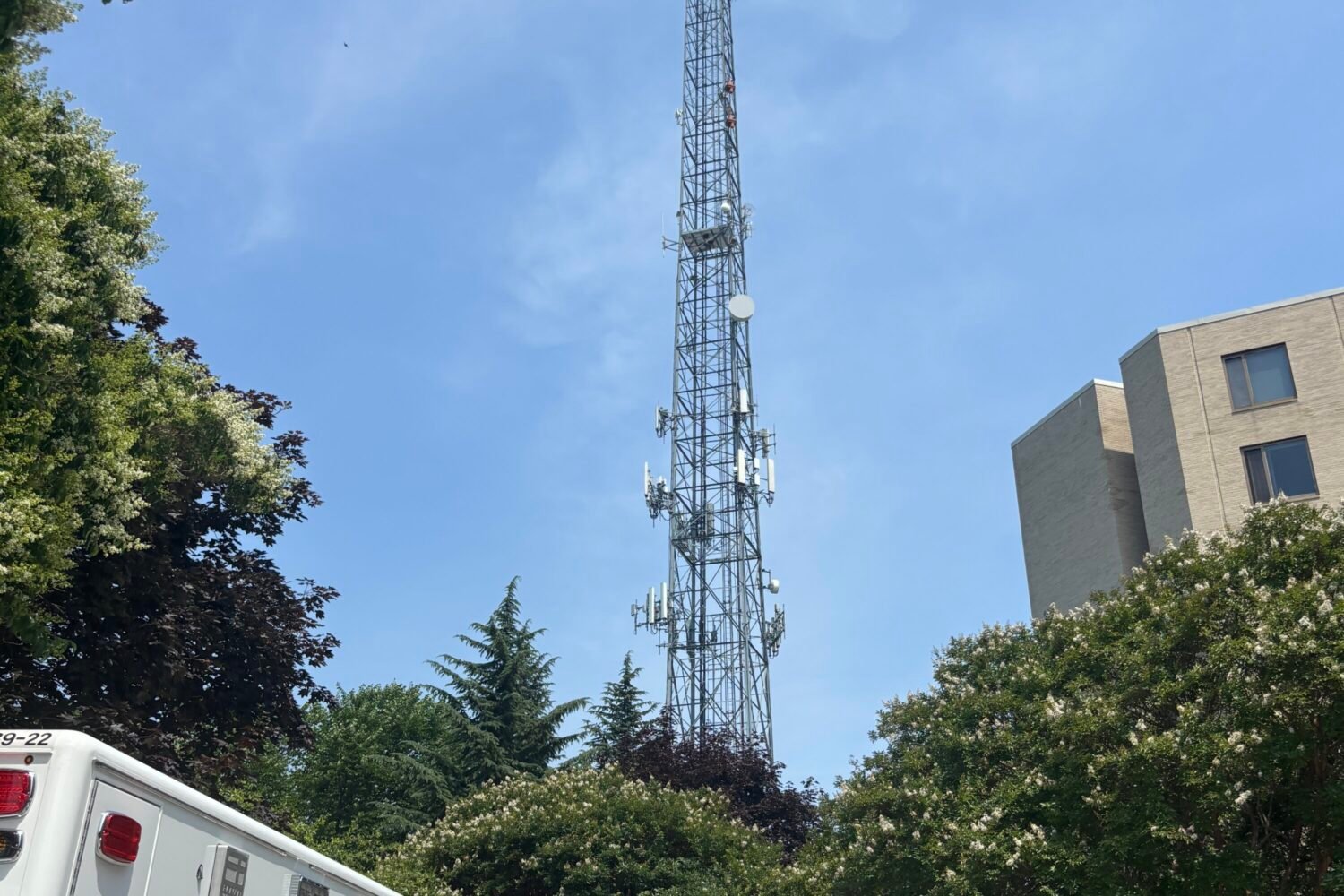On September 9, MPD is set to release a month’s worth of comprehensive stop-and-frisk data, the first report of its kind in DC. While MPD released basic stop-and-frisk data before—where the stop happened, the race of the person in question—the September report will include new information, such as the reason for the stop, the duration of the stop, and whether a search was conducted. The release of the report comes after a three-year-long battle between MPD and DC’s ACLU chapter to get the District to comply with the 2016 Neighborhood Engagement Achieves Results (NEAR) Act, which requires extensive records of all police stops.
Though the collection of the stop-and-frisk data is just one of the 20 provisions in the NEAR Act, its release could signal a major step towards better police accountability, according to groups like Black Lives Matter and ACLU, both of which filed multiple FOIA requests to get access to the data. Earlier this year, MPD told the ACLU that the data was only available in footage from more than 31,000 body camera videos—which the ACLU estimated would take more than 109 days of nonstop viewing to analyze and cost $3.6 million in redaction fees. “Now, obviously that’s impractical, and that was the entire point,” Scott Michelman, legal co-director for ACLU-DC, told Washingtonian. “They wanted to avoid anyone being able to piece together this information. I think they’re scared of what the data will show.” Though MPD argued that such reporting would require too much paperwork, the ACLU drafted a one-pager officers could fill out, modeled after a form used by the NYPD, to illustrate how simple the process could be. During the back and forth with MPD, the ACLU, along with BLM and Stop Police Terror Project DC, filed a lawsuit against the city for this information and, in June, the DC Superior Court ruled that MPD had 28 days to fully comply with the NEAR Act.
Deputy Mayor for Public Safety and Justice Kevin Donahue says the city is finally publishing that data on a continuing basis, starting with September’s report, which focuses on data collected between July 22 and August 18. Donahue says the report will be published in a way that’s readable to the layperson but will also be available in “its raw form,” so that the public can ask questions and analyze the data themselves. He says the report will be the “demonstration of compliance that the ACLU’s been waiting for.”
The NEAR Act, introduced by Ward 5 Councilmember Kenyan McDuffie, was passed in 2016 as a direct response to the significant jump in recorded homicides in 2015. Fully funded by the mayor’s 2018 budget, the legislation followed a model used in Richmond, California and created the Office of Neighborhood Safety and Engagement (ONSE). The ultimate goal was to reach those who were most at risk of getting involved in gun violence as early as possible, while also seeking to improve police encounters in communities where violent crimes were most prevalent. For the most part, the District has fulfilled the 20 titles laid out in the act.
But some groups, like the ACLU, were left wondering what took so long for the city to fully comply with the section on data collection. MPD says this process required significant upgrades to its databases in a way that prolonged the process. Additionally, the police department had to redesign its moving violation tickets to reflect the new data being recorded—including the race given by the driver, the duration of the stop, whether the stop leads to a search, and if something illegal is (or is not) found. Indeed, the expanded data collection includes traffic stops and “use of force” incidents. Donahue hopes the changes will “start conversations that will make us better, fairer, and more equitable as a city.”
Michelman isn’t fully convinced of the District’s compliance: “The police have been dragging their feet, obfuscating the degree of their compliance, misleading the public, and trying to stave off a court order for going on three years now.” Still, he says, the report is a major step forward, hopefully providing a comprehensive look at how DC residents are being policed—and, specifically, whether black residents are disproportionately being stopped, searched, and arrested.
“We want to see if DC police are carrying out their responsibilities fairly and constitutionally and neutrally as we hope they are,” says Michelman. “We’re sure many individual DC police officers do. We want to make sure that they are behaving in a constitutional manner across the board, as opposed to potentially singling people out based on their race, or without appropriate suspicion for investigation.”
Because the city uses two systems to collect this data, Michelman says there’s still a chance the information will be misrepresented—for example, stops could be recorded twice, which could skew percentages. While Donahue says the two systems have been well integrated, the ACLU remains concerned that the systems are not compatible (as in, one system providing more options for the officer to select than the other). In other words, we’ll have to wait until September 9 to know if the District has fully complied.
“The devil here is in the details,” Michelman says, “and it always has been.”
This story has been updated with the correct date the data will be released.

















